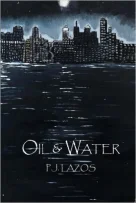Canto Della Terra
(Song of the Earth)
First came the men with the trucks, V8 engines and tires so big you needed a stepladder to get into the cab, walking around like they belonged here. From our perch on the hill we can see the farm that slopes away from our property, 100 acres of prime, tillable land, spreading out like a giant gaping yawn, the perimeter ringed with oaks, ash, poplar, locust. When we bought our house we thought we were in heaven, surrounded by acres of woodland and a great open space beyond. Our neighbors, all four of them, have similar lots. It was a child’s playground and our kids thrived. In the winter, we pulled snow saucers with the 4-wheeler on moonlit nights, laughing until we couldn’t breathe, my husband driving, the kids and I squealing with delight. We cross-country skied and walked the dog when the crops weren’t in the ground. He ran with delight like a thoroughbred, chasing geese and squirrels and his own doggy bliss. We had picnics and parties, a tree fort and a zipline, and always privacy. Watching developments shoot up like mushrooms around the county, we never took a minute of it for granted. 
My neighbor called. “What are those trucks doing out back?” My neighbor’s a pilot who, among other things, flies body parts to hospitals slated for transplants. He’s not easily rattled, but his call meant he thought the trucks meant bad news for us. I hadn’t see the trucks at first. Tucked back at the top of a horseshoe opening in the field with trees on either side, our view is straight ahead until we actually walk out into the field. We love it because we’re mostly hidden, but clear-cut the place and put up a development with 250 houses on half-acre lots and what have you got but an ugly view and decimation of a lifestyle. 
After an hour or so, the trucks left. I was not naive enough to think they were retreating, just regrouping. I breathed a sigh and started dinner. The next day while I was at work, the farmer came and talked to my husband. His son who had been farming the land for the last decade and renting the property from a trust had bought the farm. It was going to stay in the family and they were going to continue to farm it. Yay! No development! Ah, but life is not static and change it’s only constant. The farmer wanted a more productive farm, and the trees, some of them a hundred years old if they were a day, encroached on that productivity. And then there was the value of logging them. Let the breath-holding begin. 
Six a.m. a couple of days later; headlights flooded our bedroom. Because we live in the woods, we don’t bother much with closing the blinds, another luxury. An hour or so later, the sound of chainsaws permeated the air, taking up all the space in my lungs, followed by creaking, groaning and a sound like thunder as 80, 90, 100 foot trees toppled over and died, over and over the pattern repeated.  With each crash I ducked, flinched, choked back a sob, another life snuffed, another owl habitat dismantled, another deer bed destroyed. More productive meant critter habitats decimated as was soon to be the buffer between us and the road a hundred acres away, between us and the world. What is the saying: One man’s trash is another man’s treasure. But how could such natural world diversity be relegated to the trash heap without so much as a second look, a backward glance, a prayer of thanks or acknowledgement.
With each crash I ducked, flinched, choked back a sob, another life snuffed, another owl habitat dismantled, another deer bed destroyed. More productive meant critter habitats decimated as was soon to be the buffer between us and the road a hundred acres away, between us and the world. What is the saying: One man’s trash is another man’s treasure. But how could such natural world diversity be relegated to the trash heap without so much as a second look, a backward glance, a prayer of thanks or acknowledgement. 
Winds of change, eh? Because of the open horseshoe configuration that funnels right to our house, there was always wind here, lots of it. The trees acted as a buffer. About ten years ago, we had a big storm and lost eight of our biggest trees. The oldest was 154 years old (we counted the rings). I cried then when we woke to a 75-foot treetop shoved up against our window — the blinds were closed that night and we had slept through the storm — and I cried now that they’d cut down more than eight trees in half a day. They’d been going at it for two days, the endless buzzing, groaning and crashing. I watch them fall and each time my heart felt a little heavier. 
Where’s the Lorax when you need him, although he seemed to fair no better with the Truffula trees. Like the Lorax, I will speak for the trees, but these are not my woods, not in the economic sense. Doesn’t it matter that I looked at them every day, listened to the Great Horned owls nesting in their branches as they called for a mate, watched in wonder as the snow coated the hemlocks and marveled again as the sun tickled the icy crystals and danced against a backdrop of blazing white. I know these woods belong to the farmer and I know it could be so much worse: a housing development or a strip mall. I know how lucky we’ve been to live in the middle of such a private paradise, hidden away from civilization, yet with the kids’ schools, the grocery store, civilization all within a mile or two in any direction. Yes, we’ve been lucky, but it’s not just for me that I grieve. 
The hedgerow that divided this farm from the next one over has been taken out at the knees. The birds who inhabited it by the hundreds were fluttering around the downed trunks and branches, looking for friends and loved ones like survivors of an earthquake. 
“We can always plant more trees,” my neighbor said. He’s right, of course, and the woods still exist. The farmer only took the bigger trees and left the rest to grow, but the boundary has been pushed back and there’s simply less of everything. It’s not been the first and probably won’t be the last time the hill has been logged, but these trees were my friends, like members of my family, sentinels standing tall and silent, giving us shade and music when the wind blew, and a place for the fox and the deer and the hawks to live, creatures who also needed a home and who we relished seeing. Where will the birds go now? Will the owls come back? Will we still see the family of deer walking past our backyard at dusk, or the red fox at night, looking for a meal? What about the baby raccoon that sometimes came up on our back porch to drink from the cats’ water bowl or sample their food. Was their habitat destroyed as well? 
As farmland and its attendant woods gets more regularly eaten up by development across the county, where the critters go now will be anyone’s guess. A diverse habitat needs room to grow just as humans need room to grow. What does such a culling do to the ecosystem, to diversity, to the balance of life? Once and done and the earth can absorb it, but over and over across the county, the nation, the world, one micro-system after another destroyed, at some point, you hit a tipping point and there’s no coming back. Is anyone even watching to see what that point is? 
It’s funny how quickly you get used to a changed landscape. From our kitchen, it doesn’t look all that different, just less dense. Then I walk the dog and see the stumps and logs and the ruts where the truck tires ran again and again, the abandoned hideaways of animals that used to live there, the bits that remain. 
I must remember to count my blessings. The dog can still run. I can still ski. We can still run the 4-wheeler. There won’t be a 250 cars parking in 250 garages behind my house. Still, the woods will be quieter, and so will our home once the sound of crashing and splitting and dragging is over, when the rustling of leaves in the wind has lessened and the critters have all moved away to places where the trees still stand, that is, until there are none left standing.
pjlazos 2.11.18












Pingback: Requiem for a Sycamore | Green Life Blue Water
It is sad for sure. We’ve seen so much development in our area too. The poor critters have such a hard time. More balance is needed, but humans have never been very good at that. Three story homes where children used to play in the woods and wildlife lived their lives in peace. All gone in my area too.
LikeLiked by 1 person
Irreplaceable resources and people out of balance with nature and dysfunction wherever I look. 😩 I think there’s a correlation, Michele.
LikeLike
The one thing we can all do is make a safe place in our yards–no matter how tiny, for wildlife. That’s what I’ve done even though I live in the burbs, and I think in some small way it’s made a difference.
LikeLike
Kudos to you as it’s true, Michele. 👏 Small efforts lead to big changes!
LikeLike
Why u dont vote us?
https://superduque777.wordpress.com/
IF YOU DONT VOTE US WE ALL WILL NOT FOLLOW YOU ANY MORE..
LikeLiked by 1 person
I’m not sure what that means. 🤔 Vote for what?
LikeLike
Why u dont vote us?
https://superduque777.wordpress.com/
LikeLiked by 1 person
This is so sad…. is something attacked a person that was as destructive as human beings are to the planet, the dosctor’s would prescribe drugs to kill it off!
LikeLiked by 2 people
I believe you’re right, Paul.😩
LikeLiked by 1 person
It was painful to read this article.
What a world . . .
LikeLiked by 4 people
Indeed.😞
LikeLiked by 1 person
A sad post. You think of of how long those trees were there and someone comes along with a chain saw and wipes out 150 years in an hour. And they probably use it as building material for one of those 250 unit developments.
LikeLiked by 3 people
Worse, Ken. They were sending the black oak all the way to China. Imagine the carbon footprint on that!
LikeLiked by 2 people
My darling, I know this isn’t as bad as you feared but you still have that right to feel as you do about this. SO often an inch becomes a mile and that is what we fear. Your comment about the snow geese has cheered me for you xxxxx.
LikeLiked by 4 people
I know, right. So many snow geese and beautiful flight patterns! I took videos. Noisy bunch!!😘🙏
LikeLiked by 2 people
Sometimes life just gets in the way of life xxxxxxxxxxx
LikeLiked by 1 person
Truer words, my sister. Truer words!🙏❤️
LikeLiked by 1 person
I understand! It doesn’t matter that it isn’t as bad as it could have been – it matters that it happens without a care for the lives that are being disrupted, destroyed and changed. It matters that it is happening in small increments everywhere about the globe that go unnoticed and uncared for. What happens to an animal or a bird that loses its home environment? What happens to the trees who listen while their brothers fall and whose underground system of communication is broken? I understand that sometimes these things must happen for varying reasons, that is not the sadness I feel. Nor is it the natural sadness that arises in us when the things we know and love must change. It is the arrogance and the willful ignorance of the needs of the natural world that pains me. I would be out there listening to the trees, listening to the wild life, sharing their sorrow and planting metaphorically a new hope, a new life, a new communication – anything I can to help heal the human destruction. Sometimes that is all we can do. xoxo
LikeLiked by 4 people
Ah, you so totally get it! I’m going to be sure to plant trees this spring to give the ecosystem a lift and the ones left behind new growth. Thanks for your thoughtful comment.😘🙏
LikeLiked by 2 people
Hi PJ – it could have been so much worse … but just so unsettling – a little more notice would have helped – but I guess productivity for the farmer won the day – at least it won’t be a total building site – take care and enjoy helping the birds, bees and bright creatures return … cheers Hilary
LikeLiked by 3 people
Thanks, Hilary! Today there are about 500 snow geese in the field!
LikeLiked by 2 people
This saddens me. Many companies don’t care about nature and its beauty. They simply care about knocking down to build more malls, offices for their interest. However, as you mentioned, count your blessings. 🙂
LikeLiked by 3 people
Yes, it’s hard to complain when there is so much that is still good. Thanks for reading.
LikeLiked by 2 people